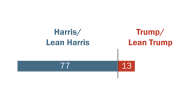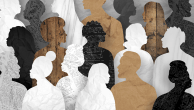Most U.S. adults (81%) say Martin Luther King Jr. has had a positive impact on the country, with 47% saying King has had a very positive impact. Some 38% say their own views on racial equality have been influenced by King’s legacy a great deal or a fair amount.
King’s impact on the country
By race and ethnicity
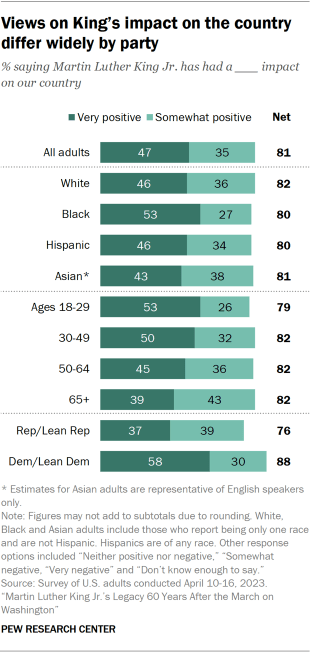
Some 53% of Black adults say Martin Luther King Jr. has had a very positive impact on the country, compared with 46% each among White and Hispanic adults and 43% of Asian adults.
Asian (10%), White (6%) and Hispanic (6%) adults are all more likely than Black adults (2%) to say they don’t know enough about King’s impact to answer.
By age
Adults younger than 50 are more likely than those who are older to say King has had a very positive impact on the country. This overall variance is mostly due to the differing views of older and younger White Americans.
Some 54% of White Americans younger than 50 say King’s impact has been very positive, compared with 40% of White Americans ages 50 and older. The opposite is true among Black Americans: 60% of those 50 and older say King has had a very positive impact, compared with 49% of Black Americans younger than 50.
There are no differences by age among Hispanic Americans, and the sample of Asian Americans is too small to analyze by age group.
By partisanship
A majority of Democrats and Democratic leaners (58%) say King has had a very positive impact on the country, compared with 37% of Republicans and those who lean to the GOP.
Ideological differences among Democrats
Liberal Democrats (68%) are far more likely than moderate and conservative Democrats (50%) to say King has had a very positive impact on the country.
There is no difference on this question between conservative Republicans and moderate and liberal Republicans.
King’s impact on personal views on racial equality
By race and ethnicity
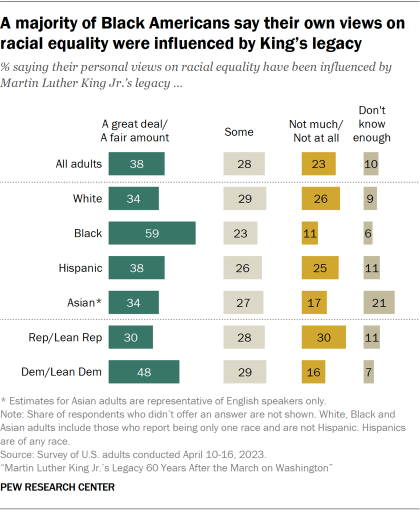
A majority of Black Americans (59%) say Martin Luther King Jr.’s legacy has influenced their own views on racial equality a great deal or a fair amount. Far smaller shares of Hispanic (38%), White (34%) and Asian (34%) Americans say the same.
About one-in-five Asian adults (21%) say they don’t know enough about King’s legacy to say how it’s impacted their own views. This is larger than the shares of Hispanic (11%), White (9%) and Black (6%) adults who say they don’t know enough to answer.
By partisanship
About half of Democrats (48%) say King’s legacy has influenced their own views on racial equality a great deal or a fair amount; 29% say King’s legacy has influenced their views some; and 16% say it hasn’t influenced their views much or at all.
Republicans are more mixed: 30% say King’s legacy has influenced their own views on racial equality a great deal or a fair amount; 28% say it has influenced their views some; and 30% say it hasn’t had much influence or hasn’t influenced their views at all.
Racial and ethnic differences among Democrats
A majority of Black Democrats (63%) say King’s legacy has had a great deal or a fair amount of influence on their views on racial equality. Far smaller shares of White (46%), Hispanic (41%) and Asian (40%) Democrats say the same.
In their own words: What Americans say about Martin Luther King Jr.’s legacy
(Selected written responses to an open-ended question)
“He wanted equality for all people, not just for blacks. He wanted all poor people to have a better life in this country. He was against the war in Vietnam. He fought for voters’ rights. He loved all people in this country.” – Black Democrat
“At the time he was a radical, hated by a majority of white folks. He advocated for equality not just in racial acceptance but by changing the economic system to lift up the poor.” – White Democrat
“MLK, Jr. pushed for equality among all people, regardless of skin color, not because of skin color. He did not intend for the outcome of his fight to be an emphasis on race, as we are seeing today, but rather, he sought a world in which race is irrelevant.” – White Republican
“MLK Jr was remembered for civil disobedience and peaceful protests, but people often forget he was a radical and was not some quiet pastor. He was a man of the people and he was killed for advocating for human rights.” – Asian Democrat
“He didn’t only want equality for black people; he advocated for all. He also didn’t tear down white people to make his point; he knew and said that it took their involvement for change as well.” – Black Republican
“MLK believed in a meritocracy rather than affirmative action, or worse, reparations.” – White Republican
“The popular conception of MLK was that he was someone who cared solely about racial equality. In fact, King viewed economic injustice and racial injustice as interlinked and inseparable. King supported radical redistribution of wealth, strengthening the safety net and, yes, reparations for black Americans.” – White Democrat
“His legacy, which was far more radical in his day than is recognized now, has largely been whitewashed to one carrying a ‘love everyone but don’t change anything systemic’ message. His views on economic equality, the ones he espoused shortly before his death, are still radical today.” – Black Democrat
“He believed true equality is colorblind and that the goal is equal opportunity, not equal outcomes. He would very much disagree with the ‘Black Lives Matter’ movement. He believed ALL LIVES MATTER, and that it is not racist to say so.” – White Republican
“He tried to get both black and white people (and other colors) to get along because we’re not different races, rather one race, the Human Race. Sadly, I think only some people understand that and live it, others try to use race as a tool to divide us.” – Hispanic Republican
“I think about how much he’s been whitewashed and how many people quoting him today would have hated him back then. I think of how he wanted equality for all, most notably for Black people, but also for all marginalized people.” – White Democrat
“When I think of what MLK taught, the first things that come to mind are ideas rooted in finding commonality in each other, uniting people on the principle of being equal, and fostering mutual respect and appreciation for one another.” – White Republican
Familiarity with King’s ‘I Have a Dream’ speech
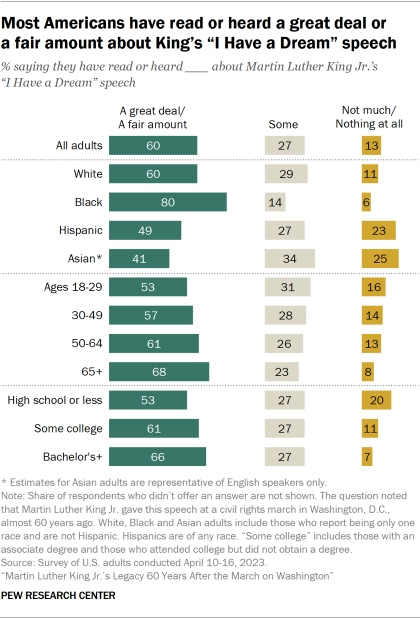
Most U.S. adults (60%) say they have heard or read a great deal or a fair amount about Martin Luther King Jr.’s “I Have a Dream” speech. About a quarter (27%) have heard or read some, and 13% haven’t heard or read much or anything at all about the speech.
By race and ethnicity
Eight-in-ten Black adults say they’ve heard or read a great deal or a fair amount about the speech, followed by 60% of White adults, 49% of Hispanic adults and 41% of Asian adults.
About a quarter of Asian (25%) and Hispanic (23%) adults say they haven’t heard much or anything at all about King’s “I Have a Dream” speech.
By age
Adults ages 65 and older – all of whom were at least 5 years old when King gave the speech in 1963 – are the most likely to say they’ve heard or read a great deal or a fair amount about it: 68% say this, compared with shares ranging from 53% to 61% among younger groups.
By education
About two-thirds (66%) of adults with a bachelor’s degree or more education say they’ve heard or read a great deal or a fair amount about the speech. Smaller shares of those with some college (61%) or with a high school diploma or less education (53%) say the same.
Differences by education are evident among White and Hispanic adults, but not among Black adults. Eight-in-ten Black Americans with at least a bachelor’s degree say they’ve heard or read a great deal or a fair amount about the speech, as do 83% of those with some college and 77% of Black Americans with a high school diploma or less education. There aren’t enough Asian adults in the sample to analyze by education.


